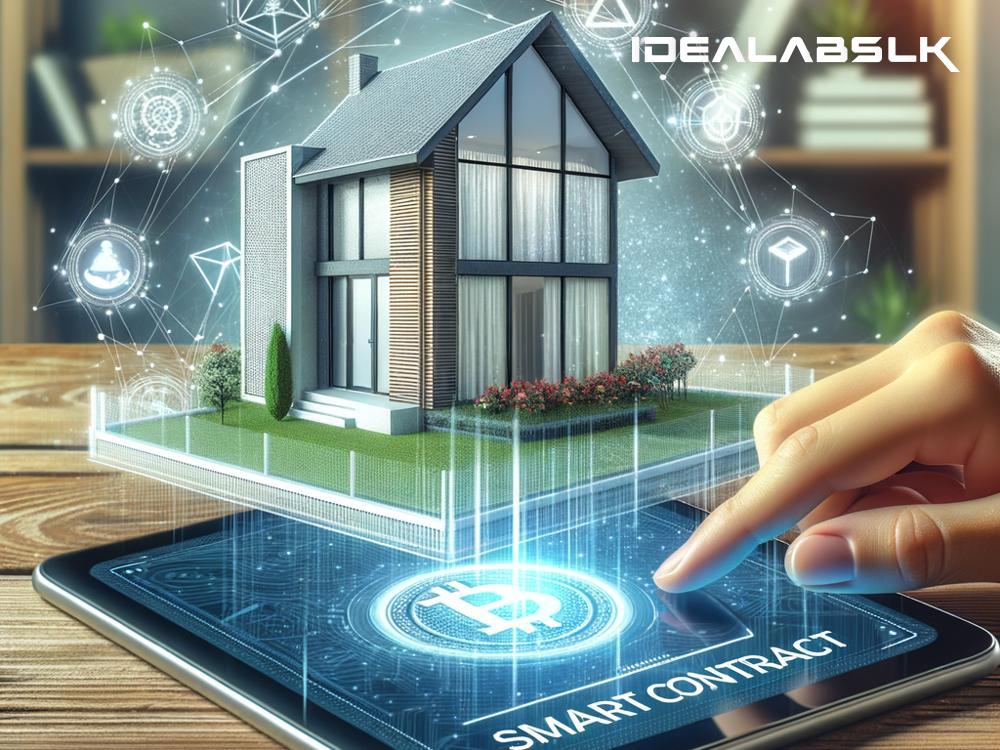Unlocking the Future: How Blockchain is Revolutionizing Smart Real Estate Contracts
In the labyrinth of property transactions, it often feels like we're stuck in a bygone era. Endless paperwork, weeks of waiting for approvals, and the gnawing uncertainty of whether everything is proceeding as it should. But what if there was a beacon of innovation guiding us into a new age of real estate transactions? Enter blockchain technology — the game-changer for smart real estate contract execution.
The Basics of Blockchain
To grasp how blockchain is transforming real estate, let's first break down what it is. Imagine a ledger or a record book that's not stored in one place but copied across thousands of computers around the world. This ledger records transactions in 'blocks' linked together in a 'chain', hence the name "blockchain." What makes it revolutionary is its transparency and security. Since every transaction is recorded across this vast network, altering any information is virtually impossible without everyone noticing.
The Magic of Smart Contracts
At the heart of blockchain's promise for real estate is the concept of smart contracts. These are self-executing contracts with the terms of the agreement directly written into code. Think of them as vending machines. You select a product (enter the contract terms), insert your payment (fulfill your end of the bargain), and the vending machine (smart contract) automatically releases your selected product (completes the contract). Everything happens quickly, transparently, and without the need for intermediaries.
The Revolution in Real Estate
So, how does this technology overhaul the traditional real estate process? Let's dive in.
1. Speed and Efficiency
Firstly, blockchain and smart contracts dramatically speed up transactions. Traditional real estate deals can be time-consuming, often taking weeks or even months to close. With blockchain, the process can be reduced to just a few days. Smart contracts automate and streamline the process, eliminating the need for various intermediaries like lawyers and bankers, thereby saving time and money.
2. Enhanced Security and Transparency
Blockchain's decentralized nature ensures that all transaction records are secure and immutable. This means once a record is made on a blockchain, it cannot be altered or deleted, significantly reducing the risk of fraud. Moreover, the transparency of blockchain allows all parties involved to view transaction histories and contract terms, fostering trust in the process.
3. Reduced Costs
The automation of contracts and elimination of middlemen not only speeds up the transaction process but also cuts down on costs significantly. Fees for legal services, brokers, and other administrative expenses can add up in traditional real estate dealings. Blockchain streamlines the process, making it more cost-efficient for both buyers and sellers.
4. Eliminating Errors
The precision of smart contracts also means that human errors in paperwork and misunderstandings over contract terms can be greatly reduced. The code executes exactly as written, minimizing disputes and the potential for mistakes that can derail transactions.
Real-world Applications
Several forward-thinking companies and countries are already exploring the potential of blockchain in real estate. For example, some are experimenting with recording property titles on a blockchain, which makes verifying ownership history easy and instant. Elsewhere, blockchain platforms are being developed to facilitate property sales directly between buyers and sellers, bypassing traditional real estate portals and their associated fees.
The Path Ahead
Despite its profound potential, the integration of blockchain in real estate is still in its infancy. Challenges such as regulatory compliance, data privacy, and the digital divide need to be navigated carefully. However, as technology continues to evolve and stakeholders become more comfortable with its application, we are likely to see a wider adoption of blockchain for smart real estate contract execution.
In Conclusion
Blockchain technology and smart contracts hold the promise to transform real estate transactions into a faster, more secure, and cost-effective process. While there are hurdles to overcome, the future of real estate looks bright with blockchain leading the way. As more and more people recognize the benefits of this revolutionary technology, we move closer to unlocking a new, streamlined era of real estate transactions that are to the advantage of buyers, sellers, and everyone in between.

